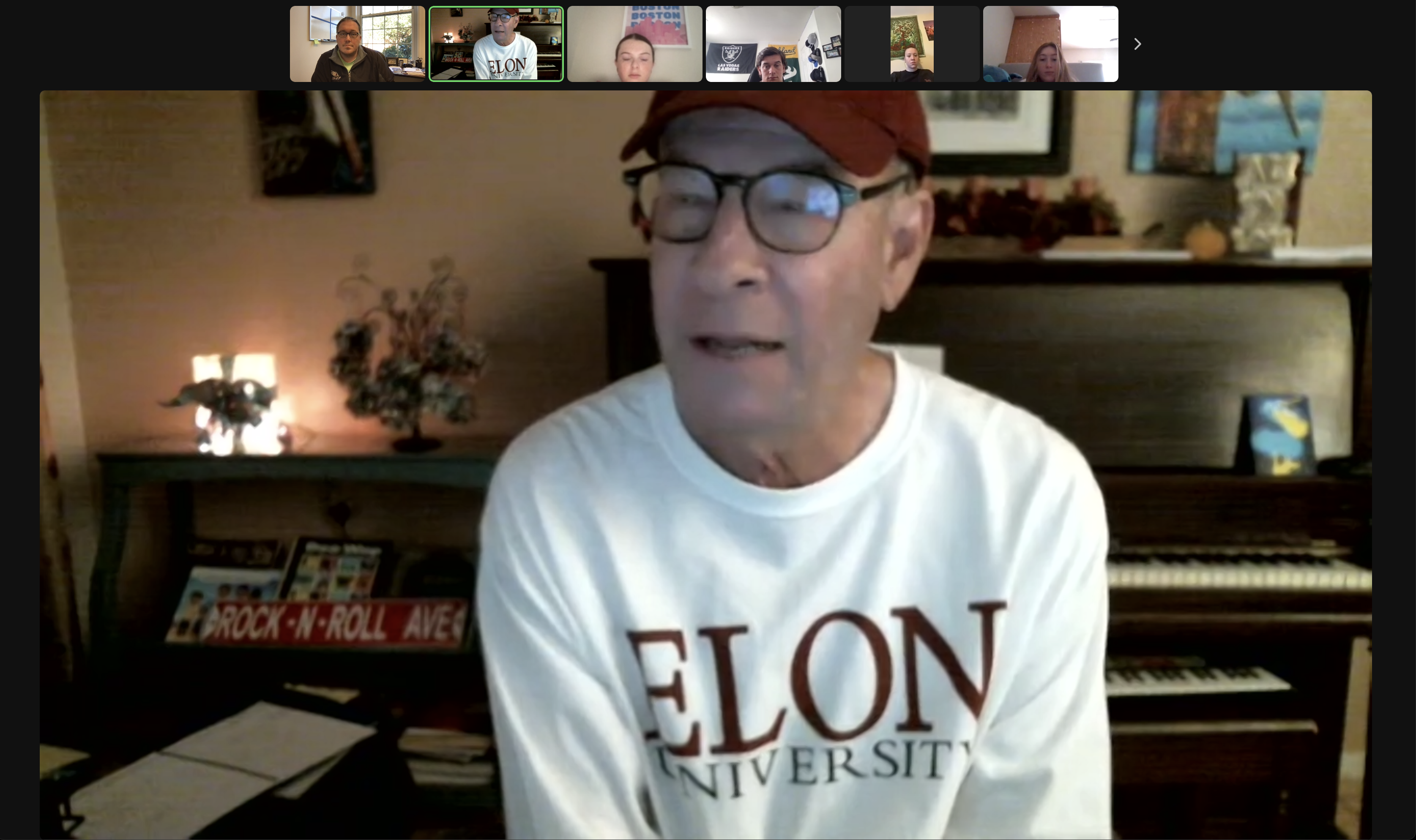The renowned journalist spoke virtually to Colin Donohue’s Media Writing class about his career and tips for success.
On Aug. 30, Colin Donohue, the School of Communications director of student engagement and alumni affairs, tweeted that the first three books he had read as part of his narrative nonfiction writing MFA program offered an incredibly strong start to his semester.
One of the books, “Writing Tools: 55 Essential Strategies for Every Writer” by journalist and Poynter Institute of Media Studies faculty member Roy Peter Clark, was also being used in Donohue’s Media Writing class this semester.
Clark’s response via tweet: “Invite me to ‘visit’ your class.” So they set a date and on Nov. 17, Clark joined a Zoom call.
After serenading students with a brief acoustic guitar rendition of Elvis Presley’s “Blue Suede Shoes,” Clark shared his journey from a career as an English professor to journalist and author. He spoke about his path to authoring 20 books and the writer’s block he faced along the way.
“When I start writing, I never think it’s any good,” Clark said. “I want it to be good, but it never feels good to me. My standards are very high and when your standards are too high at the beginning of the process, that’s when self-doubt kicks in.”
During the hour-long discussion, Clark fielded questions from students in the class, who had the opportunity to learn about his specific approach to journalism through professional and grammatical tips for success.
“Think of the period as a stop sign,” Clark said. “Every word or phrase that occurs right before the period is going to get special emphasis whether you want it to or not. In almost every joke you tell, humor is predicated on putting the funny bit at the end.”
When writing, Clark said he is a proponent of “trusting the process” and reading aloud everything he writes to catch awkward phrasing. But he also highlighted the importance of tone, the unique, individual style and voice of writing that everyone develops over time.
“You want your writing voice to sound a little better than you are,” Clark said. “The authentic you with some of the rough edges polished off.”
Reflecting on the experience, Donohue is grateful for the unique opportunity his students received and hopes their time with Clark will positively influence their future writing.
“What an absolute honor and privilege to have Roy Peter Clark, often referred to as America’s writing coach, join media writing students to talk about the craft of writing,” Donohue said. “As expected, Dr. Clark offered sage advice, nuanced insights and clarifying lessons about writing and rhetoric. In just 60 minutes on Zoom, he made us all stronger and more discerning writers.”



